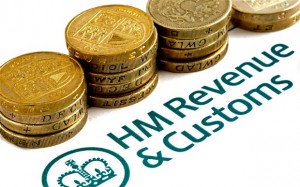 A new plan allowing HM Revenue and Customs to seize funds from personal bank accounts to recover unpaid taxes has come under fire from MPs. The cross-party Treasury Committee recently announced that it has “considerable concern” about the plan, which was recently proposed by Chancellor George Osborne.
A new plan allowing HM Revenue and Customs to seize funds from personal bank accounts to recover unpaid taxes has come under fire from MPs. The cross-party Treasury Committee recently announced that it has “considerable concern” about the plan, which was recently proposed by Chancellor George Osborne.
The Treasury Committee, a group of influential MPs, believes that the new powers could reintroduce the discredited and controversial Crown Preference rule – an old regulation that gave HMRC the ability to access personal accounts after companies went bust in order to recover unpaid tax bills.
Without some form of independent oversight, the new power granted to HMRC may lead to fraud and error, according to the Treasury Committee. In a statement, it said that a “lengthy and full consultation” would be required so that the public could be more aware of the powers the plan would give to HMRC.
Chancellor George Osborne has defended the plan, claiming that similar powers are already afforded to the Department for Work and Pensions. According to the MPs, the parallel between HMCR and the DWP’s ability to recover child maintenance is “not exact” – the Department for Work and Pensions, unlike HMRC, is “acting as an intermediary between two individuals” when it recovers funds from a personal account.
The committee claims that fraud could be an issue, and that incorrectly collecting money from accounts could result in issues for taxpayers. In order for any type of legislation allowing HMRC to recover funds from personal accounts to be accepted, the government “must consider safeguards” to protect against errors.
The government has responded to some criticisms of the plan, noting that the long-term economic plan involves reducing the deficit by collecting debts. It highlighted the “minority that chooses not to pay [taxes], despite being able” as a leading issue in reducing the deficit.





